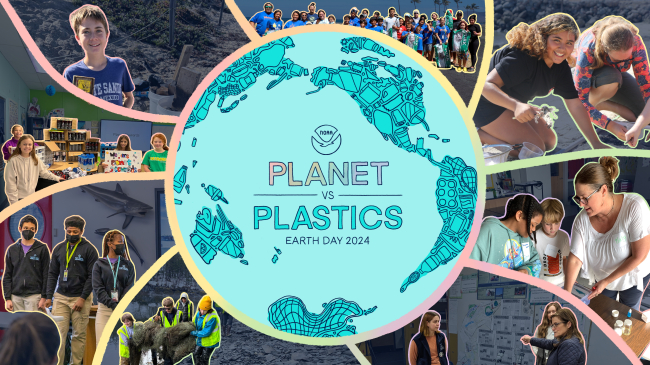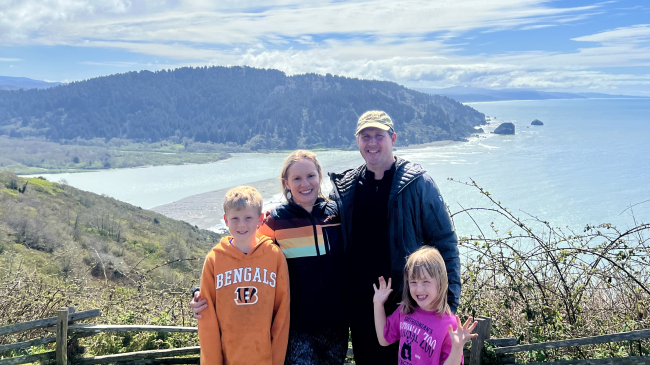The U.S. Geological Survey estimates that Louisiana’s coastal parishes have lost 5,197 square kilometers (2,006 square miles) of land from 1932 to 2016. Louisiana is losing coastal wetlands at an average rate of a football field every hour. As the land subsides, sea level rises, and less sediment reaches the Gulf of Mexico from the Mississippi River each year, these changes threaten the livelihoods and cultures of coastal communities — not to mention some of the country's most valuable energy and fisheries industries.
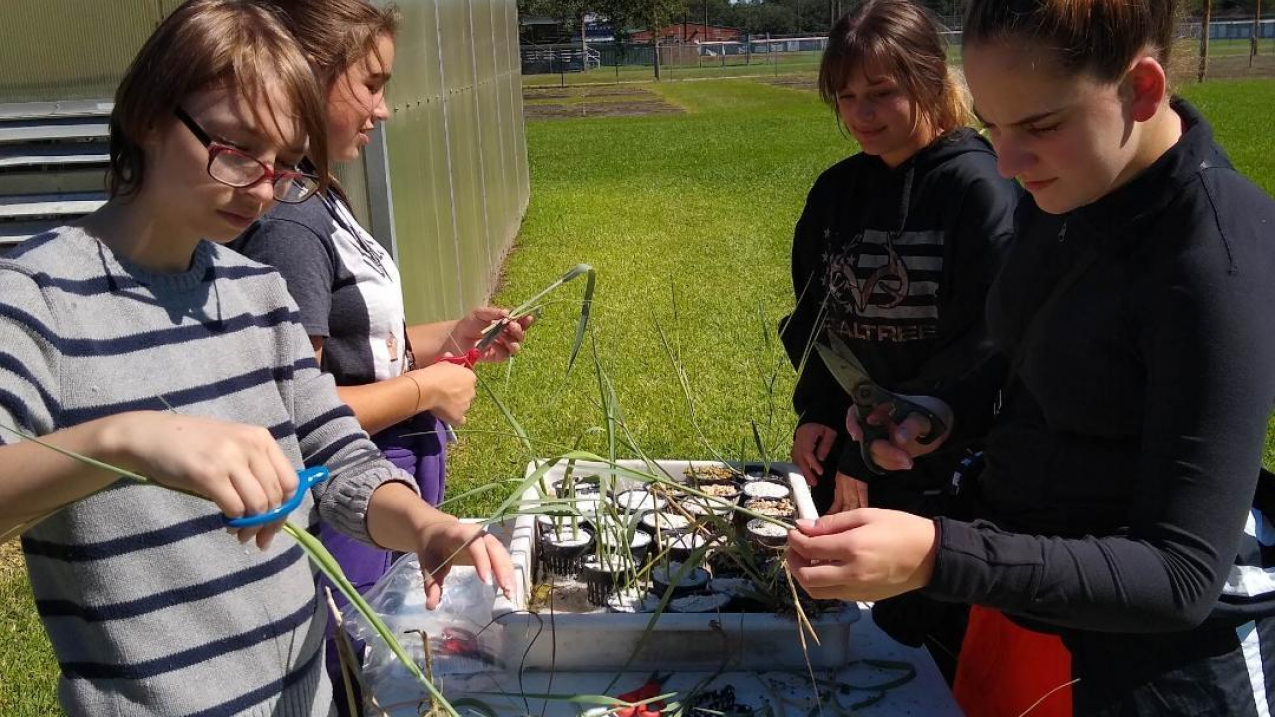
Students from Westlake High School start bitter panicum sprouts at Aquaponics Lab. Full grown plants will be used in the planned spring planting. (Image credit: Nick Limeris)
The next generation will not only need environmental solutions, but a diverse set of problem-solving skills that will help them navigate a changing world. Calcasieu Parish Schools, McNeese State University Naturelab, and the City of Lake Charles Tuten Park partnered on a Gulf of Mexico B-WET grant to provide teachers and students with the tools they need to respond to this issue.
In classrooms across Lake Charles, Louisiana, schools are cultivating bitter panicum, a native coastal grass, and Gulf killifish, a native coastal minnow, in their own aquaponics systems. Aquaponics is a form of aquaculture in which the waste produced by farmed fish supplies nutrients for plants grown hydroponically, which means that the plants grow without soil. The plants receive nutrients from the water which, in turn, purifies the water. Combining biology, chemistry, math, and engineering, this project provides students with a “Meaningful Watershed Educational Experience,” the hallmark of the B-WET program, which includes learning STEM both inside and outside the classroom.
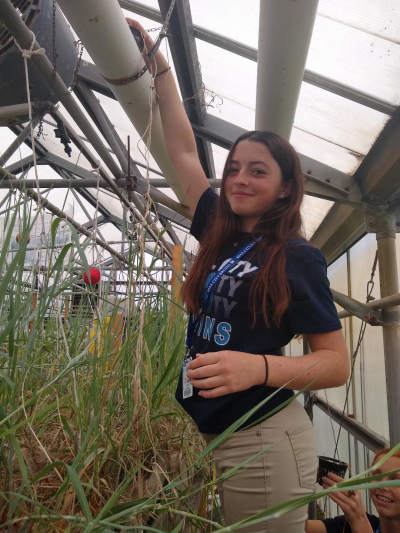
Eight teachers and their students are overseeing small-scale aquaponics systems consisting of three 3-gallon tanks in their classrooms. The Lake Charles Boston Academy hosts a larger-scale aquaponics lab in a 2,500 gallon tank. Teachers and students conduct water quality monitoring with both the classroom aquaponics systems and the larger aquaponics lab, both of which lend themselves well to scientific inquiry. Students design experiments involving water quality tests and manipulations to determine if adequate amounts of fish waste and feed are being used to maximize plant growth.
Parallel to the aquaponics work, teachers and students complete educational activities outdoors at Naturelab in nearby Tuten Park. At Naturelab, students and teachers conduct water quality testing in the field and make ecological observations. Through this experience, teachers and students gather and analyze data, building on their aquaponics experience with an understanding of how water quality affects natural ecosystems.
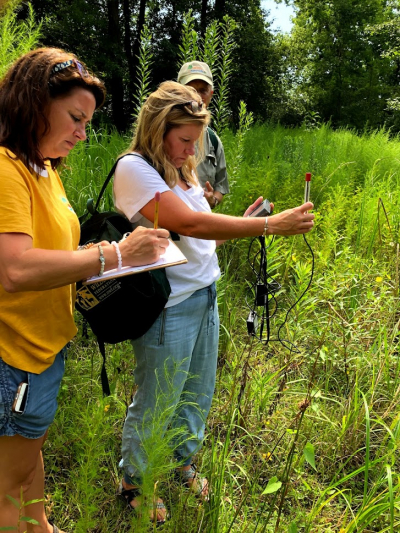
Their work will culminate in a stewardship activity in the spring of 2020. The 600 coastal grasses that will be produced by teachers and students through aquaponics will be planted in areas in need of restoration due to high erosion. Stream Wetland Services, Inc., a local wetland landscape management company, will help the schools identify the best site to plant the newly cultivated grasses.
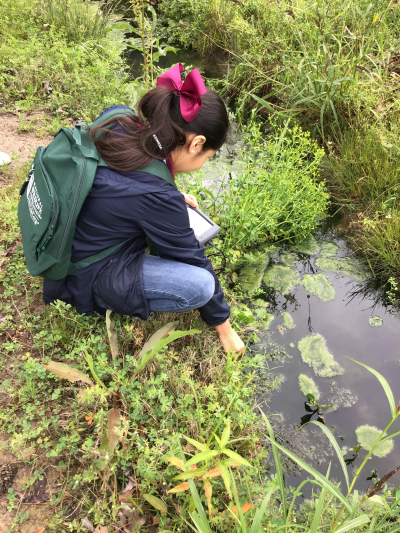
As of fall 2019, students have demonstrated a 23% knowledge gain of environmental concepts, watershed understandings, water quality parameters, and aquaponics, as determined by pre and post tests. By participating in this restoration project, approximately 1,800 students are learning about the importance of coastal grasses in erosion control, water quality, and production of habitats for coastal animals. “The lessons, aquaponics tanks, and activities helped my students relate to real-world science issues that I was able to share in real life, not just in a book or in a simulated experience,” said Tracy Pearce, who teaches sixth grade science at S.J. Welsh Middle School in Lake Charles.
This story was originally published in the Fiscal Year 2019 NOAA Education Accomplishments Report.


